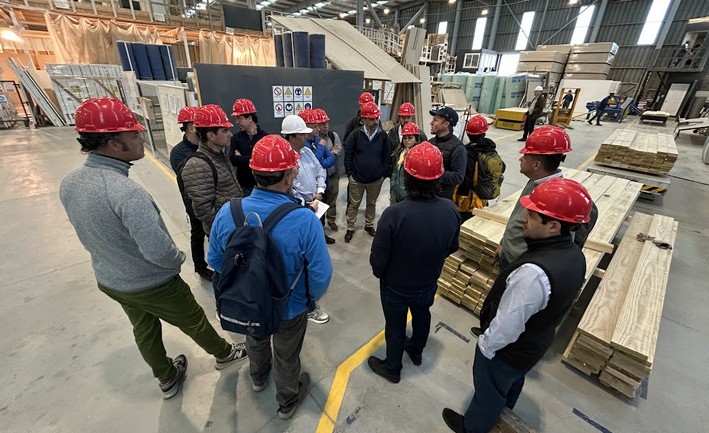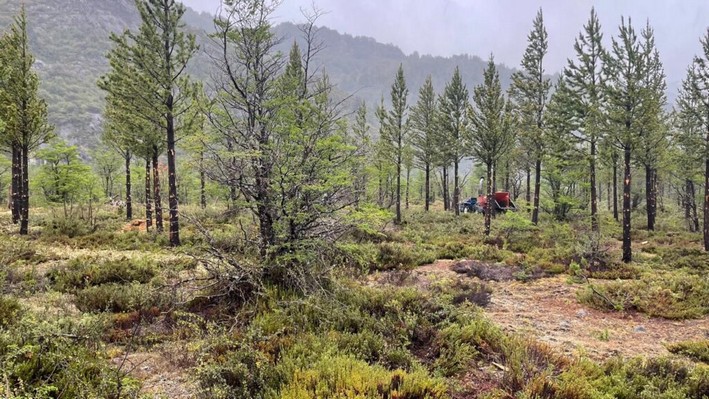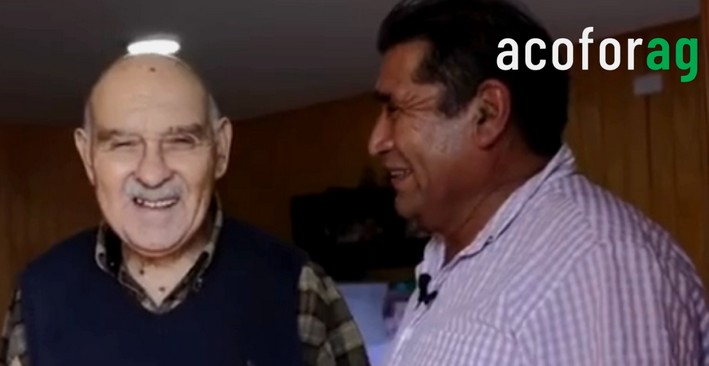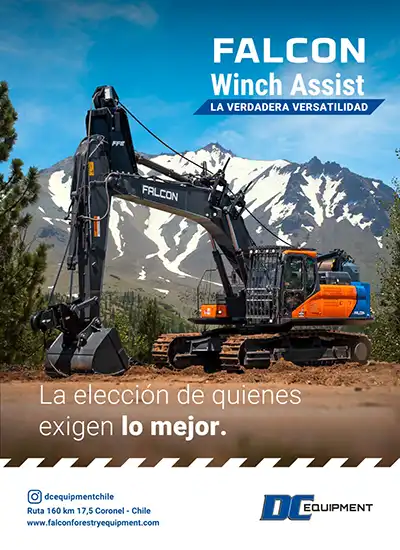Forestry Sector Could Play Key Role in Mitigating Climate Change and Achieving Carbon Neutrality
A document prepared by the "Carbon Neutrality and Resilience Committee" presented 14 short- and medium-term proposals that will be submitted to President Boric for review.
In March 2024, the government of Gabriel Boric announced theformation of an expert committeefrom the private sector, academia, and civil society, tasked withdeveloping, within five months, proposals to accelerate the country's energy transition.
And last August, the 19 members of the"Carbon Neutrality and Resilience Committee"prepared areport with 14 proposals, short- and medium-term, on which they reached consensus and which will be presented to the president for review.
The document covers topics such as water security, resilience and emission reductions in cities, energy challenges, low-emission industries, and the forestry-agricultural sector. Some proposals introduce new contributions, while others reinforce or deepen existing public policies, all of which can be implemented before 2030.
Thus, the measures meet the four key conditions set by the government: feasibility for short-term implementation; significant impact on carbon neutrality and resilience; primarily driven by the private sector, with the state providing necessary enabling conditions; and addressing issues currently neglected.
Among the measures, the forestry sector is given a prominent role in climate change mitigation and carbon neutrality. In fact, Francisco Ruiz-Tagle, CEO of CMPC, was one of the experts invited by the government to join the committee.
The committee's proposals
The 14 proposals are:
1. Accelerate the implementation of the voluntary carbon footprint certification system established in Article 30 of Law 21.455, aligned with international standards.
2. Climate-smart agriculture.
3. Increase urban resilience and enhance greenhouse gas (GHG) capture in cities.
4. Increase carbon capture in the agroforestry sector and prevent forest fires.
5. Design and implement an integrated, multi-stakeholder territorial approach for water security in the basins of the Coquimbo (Elqui, Limarí, and Choapa), Valparaíso (La Ligua-Petorca), Metropolitan Santiago (Maipo), and Los Lagos (Chiloé Island basin) regions.
6. Reduce emissions from energy consumption in cities.
7. Promote circular economy practices in cities.
8. Drive the transition from a fossil-based economy to one founded on renewable bio-based resources.
9. Promote distributed energy resources to minimize fossil fuel consumption.
10. Modify the carbon tax to adequately and progressively reflect the externalities of emissions and guide investments and innovations for emission reductions across all industries.
11. Promote timber construction.
12. Protect and value natural capital and encourage nature-based solutions.
13. Industrial retrofitting focused on eliminating fossil fuels.
14. Reuse and valorization of agricultural and forestry biomass.
Measures for the Forestry Sector
Regarding the forestry sector, one proposal promotes timber construction, drawing from the experience of countries like Canada, where timber accounts for over 90% of the construction market, compared to less than 20% in Chile.
"This will enable the development of a bio-based raw materials industry, thus advancing the circular economy," the experts' document states.
Additionally, they note that increasing forest biomass to supply timber construction "contributes to the country's carbon-neutrality commitments by permanently capturing CO2 from the atmosphere in construction materials."
In this regard, the goal is to increase the use of timber as the predominant construction material from 18% to 28% by 2030.
The document mentions that as of 2023, forested areas cover 23.8% of the national territory, totaling 18,056,618 hectares. Of these, native forests account for 14,739,009 hectares (81.62%), while forest plantations cover 3,121,969 hectares (17.37%).
"This is thevegetation responsible for half of Chile's carbon-neutrality commitment by 2050as it must absorb the total remaining emissions from the economy—those that cannot be eliminated from the system. Therefore, addressing the urgency and scalability required to tackle the climate challenge, the Committee agreed on actions to increase forest and other terrestrial and marine vegetation (natural forests, plantations, fruit trees, wetlands, algae, etc.)," the report states.
Forest Fires
The document also highlights that forest fires are becoming increasingly frequent and severe. "Last summer's fires devastated over 400,000 hectares, adding to the more than 500,000 burned in 2017. These pose a major threat not only to people but also to forests, plantations, and vegetation in general, as well as to achieving sectoral and national mitigation goals."
For example, "the mega-fires of 2017 accounted for emissions of around 68,000 kt CO2 eq, exceeding the combined emissions from land transport, electricity generation, and industries that same year. Thus, it is vital to advance in preventing increasingly frequent and intense forest fires due to climate change conditions."
Therefore, by 2030, the aim is to increase—by a percentage to be defined in an action plan—the carbon capture capacity of the country's vegetation and reduce burned areas to one-third of 2017 levels. Measures include "incorporating territorial and community-based mechanisms for wildfire prevention in the National Forest Service bill, proportional to combustible areas. Implementation is proposed to begin in 2026."
The Committee
The committee includes Paloma Ávila, CNN director; Olga Barbosa, academic and WWF-Chile advisor; Alex Berg, executive director of the Technological Development Unit (UDT) at Universidad de Concepción; Marcela Bravo, CEO of Acción Empresas; Claudio Castro, mayor of Renca; Amparo Cornejo, Sonami director; Ezio Costa, deputy director of the Environmental Law Center (CDA); Lorenzo Gazmuri, ICARE president; Mónica Gazmuri, executive director of ANESCO; Sara Larraín, director of Chile Sustentable; Ismaela Magliotto, young negotiator for Chile at COP27; Marcelo Mena, former environment minister; Gonzalo Muñoz, former COP25 Champion; Francisco Ruiz-Tagle, CEO of CMPC; María Teresa Ruiz-Tagle, executive director of CLG-Chile; Bárbara Saavedra, WCS director; Carolina Schmidt, former environment minister; Claudio Seebach, dean of Engineering and Sciences at UAI; and Javier Torrejón, director of the Valparaíso Regional Chamber of Commerce.
Source:La Tercera










